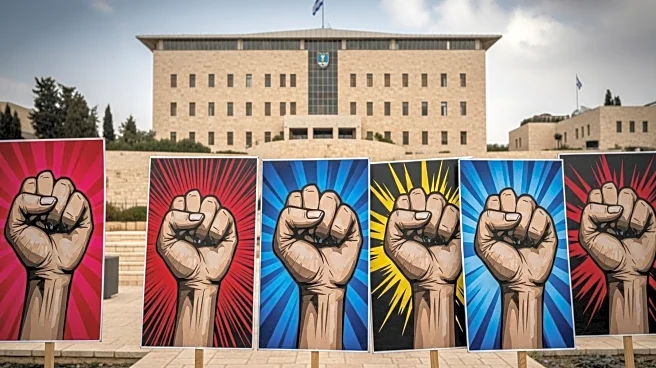What's Happening?
Thousands of protesters gathered outside Prime Minister Benjamin Netanyahu's residence in Jerusalem, demanding the release of hostages held in Gaza. The protest, led by families of Israeli hostages, marked the first of three days of demonstrations. Tensions escalated as demonstrators set trash bins ablaze and a vehicle caught fire. The mothers of two soldiers held captive delivered emotional speeches, criticizing Netanyahu's handling of the situation. Netanyahu responded by accusing the protesters of acting like fascists and criticized the lack of law enforcement.
Why It's Important?
The protests reflect growing public frustration and demand for action regarding the hostages in Gaza. The situation highlights the challenges faced by the Israeli government in addressing public concerns and managing diplomatic relations. The protests may influence political discourse and pressure the government to take decisive action. The emotional appeals from families underscore the human impact of the conflict and the urgency of resolving the hostage situation.
What's Next?
The protests are likely to continue, with potential implications for Israeli domestic politics and public policy. The government's response to the demonstrations and the hostage situation may shape future political strategies and diplomatic efforts. The situation may also prompt international attention and involvement, influencing the direction of peace talks and humanitarian efforts.
Beyond the Headlines
The protests highlight broader issues of political accountability and public engagement in conflict resolution. The emotional appeals from families emphasize the human cost of the conflict and the need for effective government action. The situation may also impact public opinion and advocacy efforts, potentially leading to increased support for peace initiatives and humanitarian aid.









